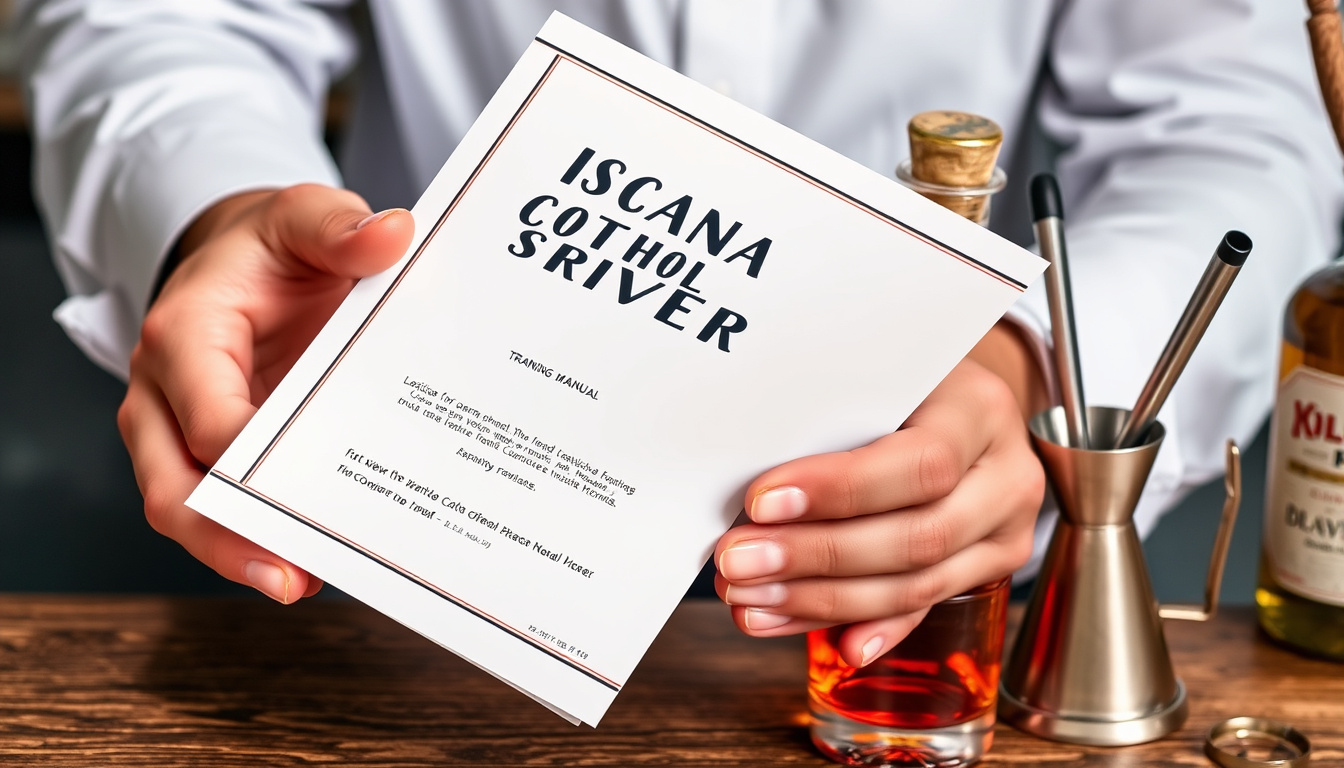When it comes to alcohol service that is responsible, Louisiana alcohol server training matters a lot. Servers learn legal duties and best steps to keep places safe. Whether you work as a bartender, waiter, or manager in Louisiana, this training helps you protect customers and shields your business from risk. This guide gives tips for service that is responsible. It shows why Louisiana alcohol server training is key and what you need to know to excel.
Understanding Louisiana Alcohol Server Training Requirements
Louisiana’s laws require alcohol server training. The law helps reduce risks like drunk driving, underage drinking, and violence. Anyone who serves or sells alcohol must complete a certified training program.
Who Needs Training?
- Bartenders
- Waitstaff who serve alcohol directly
- Managers and supervisors who oversee service
- Anyone who distributes or sells alcohol in establishments
Completing this training proves you follow state laws and care about safety and professionalism.
Key Components of Louisiana Alcohol Server Training
The training covers many important topics. It builds the skills you need for responsible service.
1. Recognizing Intoxication Signs
Servers learn to spot signs of intoxication. They look for slurred speech, poor coordination, and aggressive behavior. Early recognition lets servers act quickly to prevent over-serving.
2. Checking Identification
Servers learn to check identification because underage drinking is a big concern. The training shows how to spot fake IDs and verify age using careful strategies.
3. Legal Responsibilities
The course explains Louisiana laws. It covers penalties for overserving, illegal sales, and serving minors. Knowing these laws helps servers avoid mistakes that can cost money.
4. Responsible Service Techniques
Servers learn techniques for handling tough situations. They learn to refuse service politely, manage hostile customers, and offer non-alcoholic choices.
5. Preventing Alcohol-Related Accidents
The training stresses the need for safe transport options. It builds skills in communication to reduce risks like drunk driving.
Why Louisiana Alcohol Server Training Matters
Training helps not only those who serve alcohol but also the wider community.
- It protects public safety by reducing alcohol-related accidents.
- It cuts legal risks since trained staff lower the chance of law violations.
- It improves customer experience by creating a safe and welcoming space.
- It strengthens your business reputation and helps attract more customers.
The Louisiana Office of Alcohol and Tobacco Control shows that proper training leads to fewer incidents and better community ties.
Essential Tips for Responsible Alcohol Service in Louisiana
Your training is the start. To serve responsibly, you must use the skills you learn every day.
1. Always Ask for Proper ID
Ask every customer for a valid, government-issued ID if they look under 30. This habit helps protect your establishment.
2. Monitor Customers’ Consumption
Watch guests’ drink amounts carefully, especially during rounds or open tabs. Act when someone shows signs of intoxication.
[h3]3. Use Non-Alcoholic Alternatives[/h3]
Offer water, soda, or another non-alcoholic drink. This suggestion helps slow down alcohol consumption without causing offense.
[h3]4. Communicate Clearly and Calmly[/h3]
When you must refuse service, do it clearly and in a calm way. Explain your duty and concern for safety. This approach can ease tension.
5. Know Your Establishment’s Policies
Learn your employer’s rules for serving alcohol. Know the limits on drinks and what to do with problem situations.
Implementing Best Practices: A Checklist for Servers
Use this checklist to put your training into action:
- Verify the customer’s age using valid ID each time they order alcohol.
- Watch all customers for clear signs of intoxication.
- Politely refuse service when a customer is visibly intoxicated.
- Offer water or non-alcoholic drinks.
- Do not serve many drinks at the same time to one customer.
- Document any incidents or refusals following your establishment’s guidelines.
- Advise customers to choose safe transport like rideshares or taxis.
- Keep up to date with current laws and training changes.
[h2]Helpful Resources for Louisiana Alcohol Servers[/h2]
Staying informed helps you keep improving and follow the rules. Look at these resources:
- Louisiana Office of Alcohol and Tobacco Control (ATC): Find the latest laws and licensing tips.
- Louisiana Responsible Vendor Program: Get certified training and updates.
- National Restaurant Association’s ServSafe Alcohol: Receive well-recognized alcohol server training.
FAQ About Louisiana Alcohol Server Training
Q1: How long is Louisiana alcohol server training valid?
A: The training is usually valid for two years. Check with your provider or the Louisiana ATC for current rules.
Q2: Is the training required for all employees who handle alcohol?
A: Yes. Everyone involved in serving or handling alcohol in a licensed place must complete the training.
Q3: Can the training help reduce legal risks for establishments?
A: Yes. Proper training informs staff of rules and helps them avoid overserving or illegal sales. This knowledge lowers legal risks.
Conclusion
Louisiana alcohol server training builds a solid base for everyone who serves alcohol in the state. By teaching skills like age verification, spotting intoxication, understanding legal duties, and using responsible service techniques, the training helps keep everyone safe. Use these best practices every day and update your knowledge to stay compliant. By serving responsibly, you support community safety and boost your establishment’s success.

For more details and to find certified training programs, visit the Louisiana Office of Alcohol and Tobacco Control.


